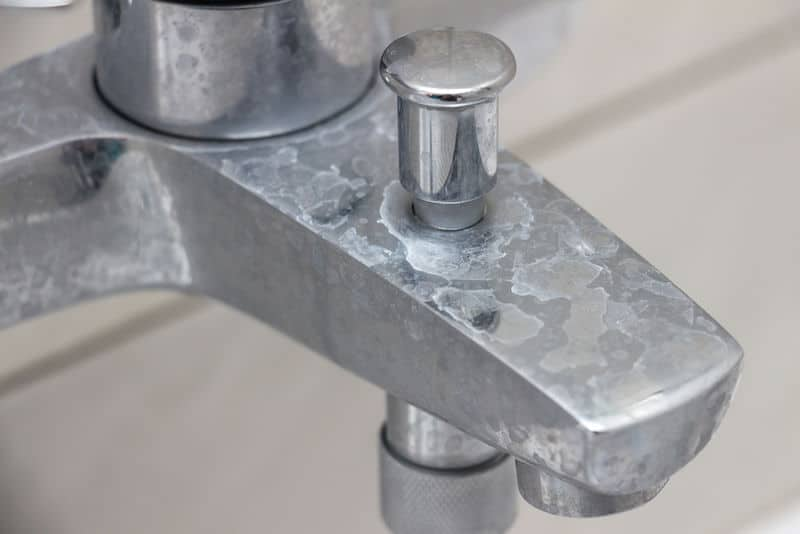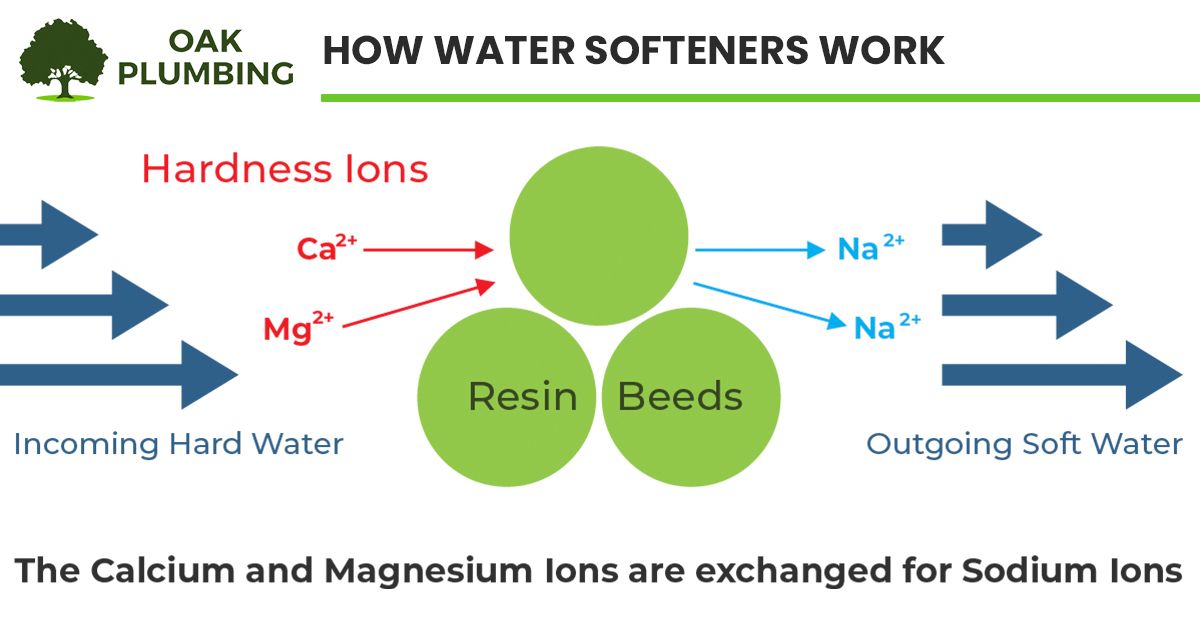Wondering what’s the difference between soft water vs hard water? If so, this short article has what you need. When you’re through reading it, you’ll know the difference between soft water vs hard water, how to find out which one you have in your home, know how water softeners work, and more.

Soft Water vs Hard Water
What is Hard Water?
US Geological Survey, soft water contains up to 60 milligrams of calcium carbonate per liter, while hard water contains a minimum of 121 milligrams of calcium carbonate per liter:
Soft water- 0 to 60 mg of calcium carbonate per liter
Moderately hard water - 61 to 120 mg of calcium carbonate per liter
Hard water - 121 to 180 mg of calcium carbonate per liter
Very hard water - over 180 mg of calcium carbonate per liter
You can see from this map that there’s a lot of hard water in the US.
So, what Makes Water Hard?
Rainwater, when it falls, doesn’t have a high concentration of minerals. Rainwater is soft, in other words. However, rainwater picks up minerals as it passes through the ground on the way to aquifers.
Hard Water Isn’t Bad for You
Hard water isn’t bad for you. In fact, it tastes better than soft water and contains minerals essential for health. It’s OK to drink, in other words. Most people even prefer the taste of hard water because of all the minerals. However, there are a few downsides to hard water, including:
- The minerals in hard water can make your skin feel dry, and your hair feel dirty after washing. It can also trigger certain skin conditions like eczema.
- Hard water can be tough on appliances. The minerals can build up and clog supply and drain lines. Dishwashers, washing machines, etc., may not last as long as they would if they were being supplied with soft water.
- You’ll notice water spots on dishes, shower doors, faucets, etc.
These problems can be solved by using a whole house water softening system. For more information, see What Are the Signs of Hard Water?
What is Soft Water?
Soft water is water that has few or no minerals. Water can be soft naturally (i.e., rainfall) or softened via a water softening system. Water that has been softened via a water softening system may taste slightly salty because sodium and potassium ions are used to get rid of the calcium and magnesium.
So, Can You Drink Softened Water?
Soft water is safe to drink. However, people with certain health problems might want to avoid drinking softened water because of the higher sodium content. Soft water is better for cleaning (soap lathers easily) and easier on appliances, skin, and hair.
Soft Water vs Hard Water - Which One Do You Have?
Signs of hard water include the following:
- There are spots on your dishes, plumbing fixtures, shower doors, etc.
- Your skin feels dry after washing.
- You wash your hair, and it doesn’t feel clean.
- Your water tastes good.
You probably have soft water if you notice the following:
- Your skin feels slippery after washing.
- Your water tastes slightly salty. (This is assuming the water was softened via a water softening system.)
- You have no problem working up a good lather.
- Your hair feels clean after you wash it.
Water Testing - Soft Water vs Hard Water?
If you’re not sure whether your water is soft or hard, test it. In fact, there’s a test you can perform right now. While it’s not the most accurate test, it can give you some indication of whether your water is soft or hard:
Half fill an empty bottle with water and then add a few drops of pure Castile soap. Shake for a few seconds. What do you see? If you see few or no bubbles and the water in the bottle is cloudy, you probably have hard water. If you see a lot of bubbles, you probably have soft water.
You can buy more reliable tests for hard water at your local home improvement store. Sending a sample of water to a lab usually isn’t necessary if you only want to know if your water is soft or hard.
Soft Water vs Hard Water - Which One is Healthier For Drinking?
Hard water contains essential minerals, tastes better, and is perfectly safe to drink. Yes, you could say that it’s even healthy to drink hard water because of the high mineral content.
Soft water doesn’t contain these minerals and, because of this, isn’t as tasty. If the water has been softened via a water softening system, it will have a higher sodium content, and because of this, it might not be healthy for people following a low-sodium diet. Check with your doctor. Of course, soft water is perfectly fine for cleaning, taking a shower, etc.
How Do Water Softeners Work?
Water softeners work by passing water through positively-charged potassium and sodium ions. This causes the positively-charged calcium and magnesium ions in the hard water to be replaced with similarly charged potassium and sodium ions, making the water soft. This is called “ion exchange.”

You first load the resin beads with the ions you want. For example, potassium and sodium. Then, as the water flows through the beads, the calcium and magnesium are changed to sodium and potassium.
The resin beads can’t do this indefinitely, though. They need to be periodically regenerated. This is why two-tank water softening systems are popular. While the resin beads in one tank are regenerating, the other tank is used. This way, there’s no downtime.
Signs You Might Need a Water Softener
Signs you might need a water softener include the hard water signs mentioned above:
- There are spots on your dishes and faucets.
- Your skin feels itchy.
- Your hair never feels clean after you wash it.
If you have hard water in your home and would like to learn how to soften it via a whole house water softening system, contact us today.

